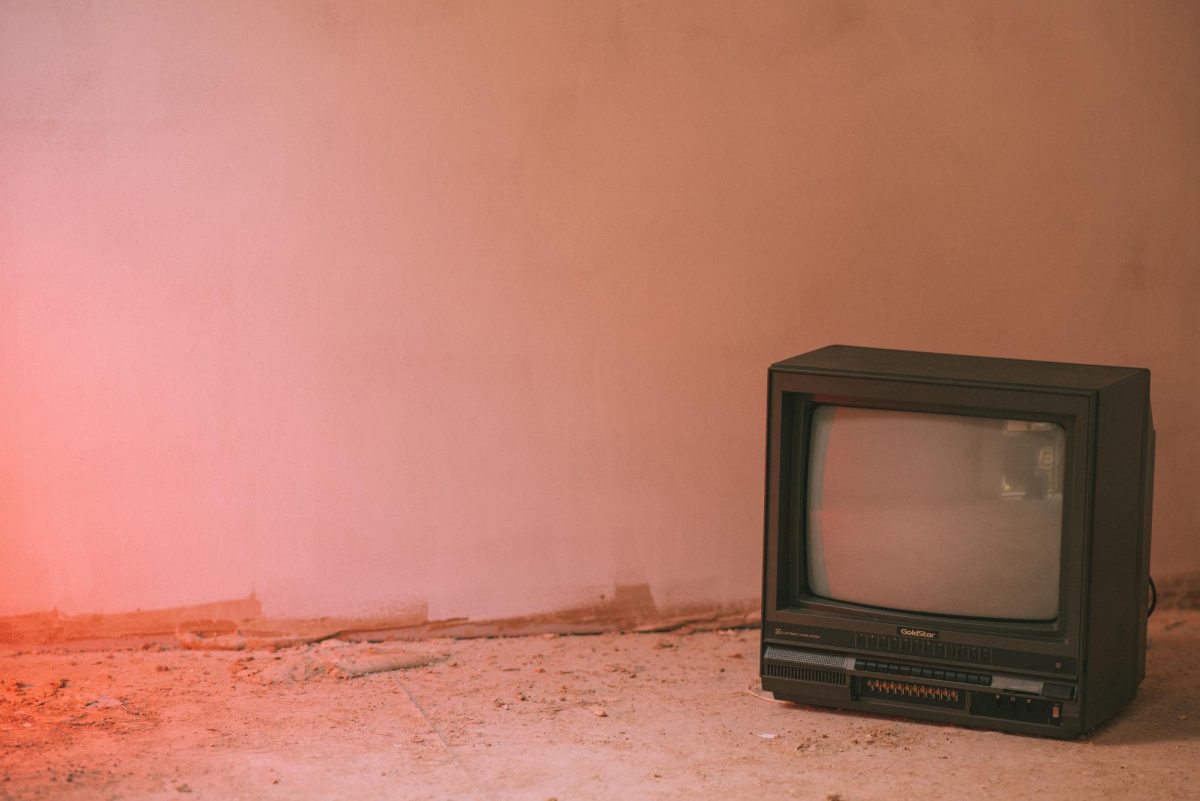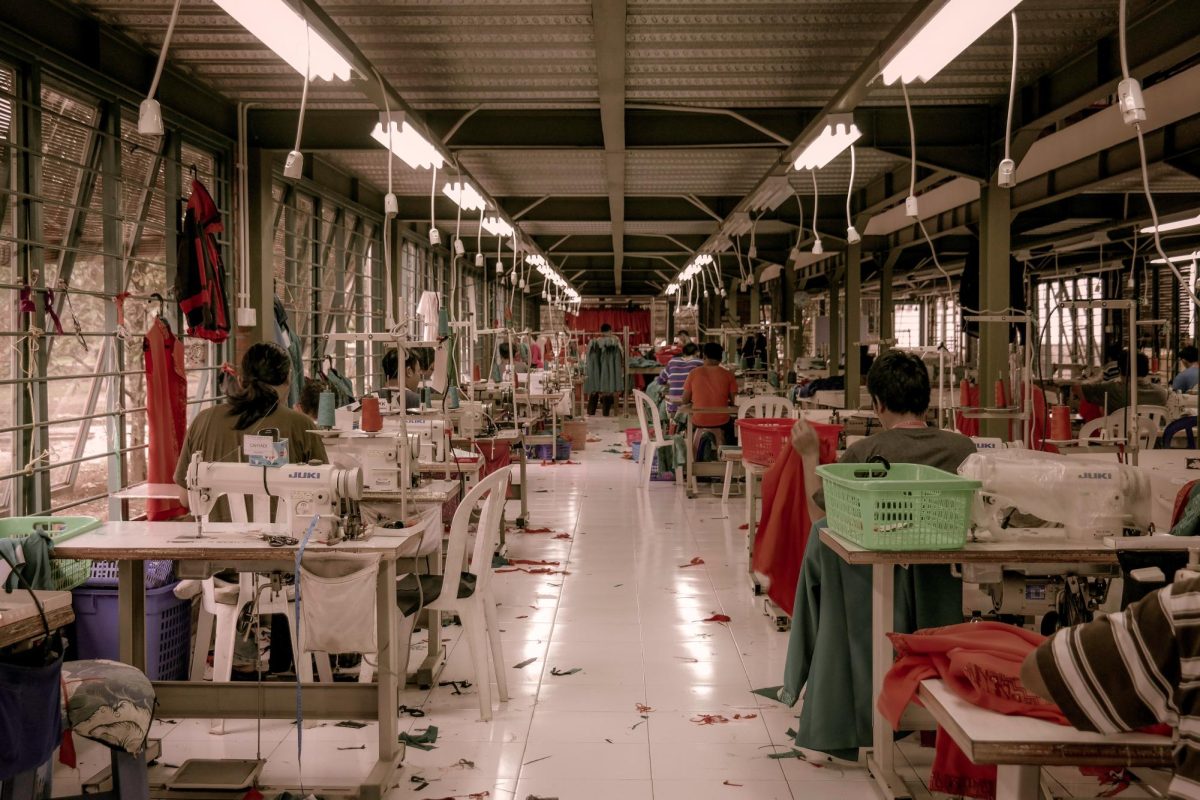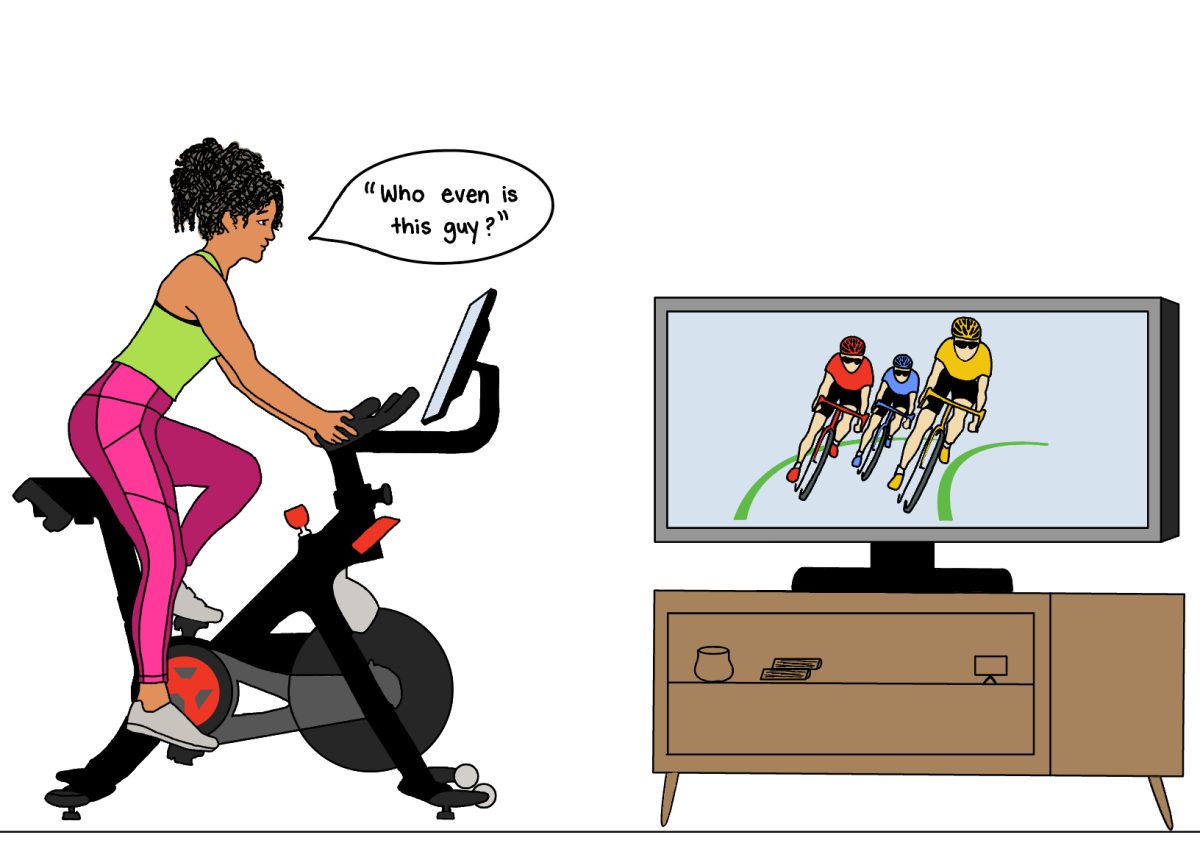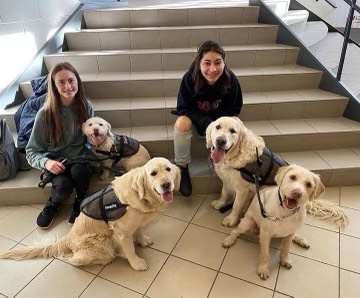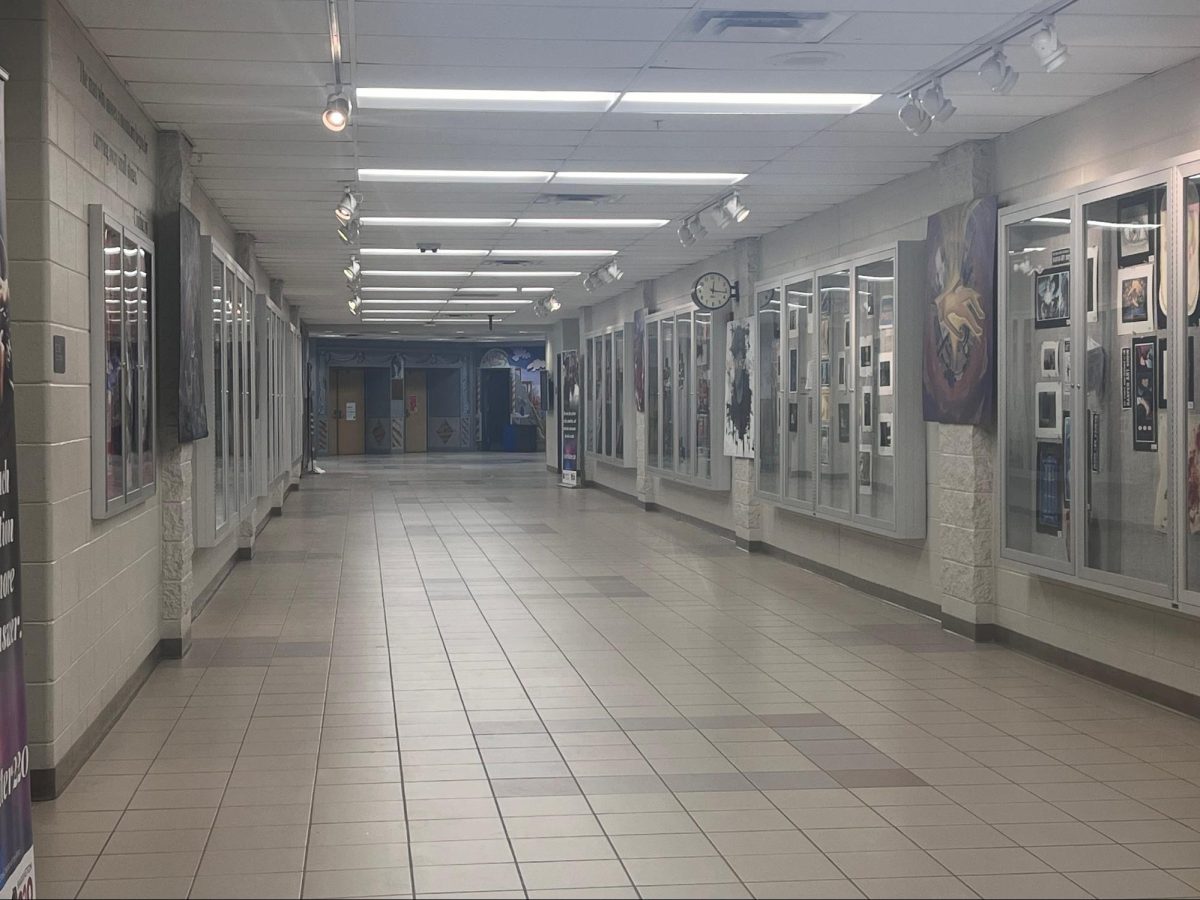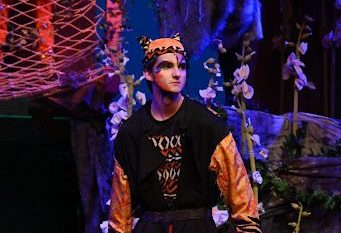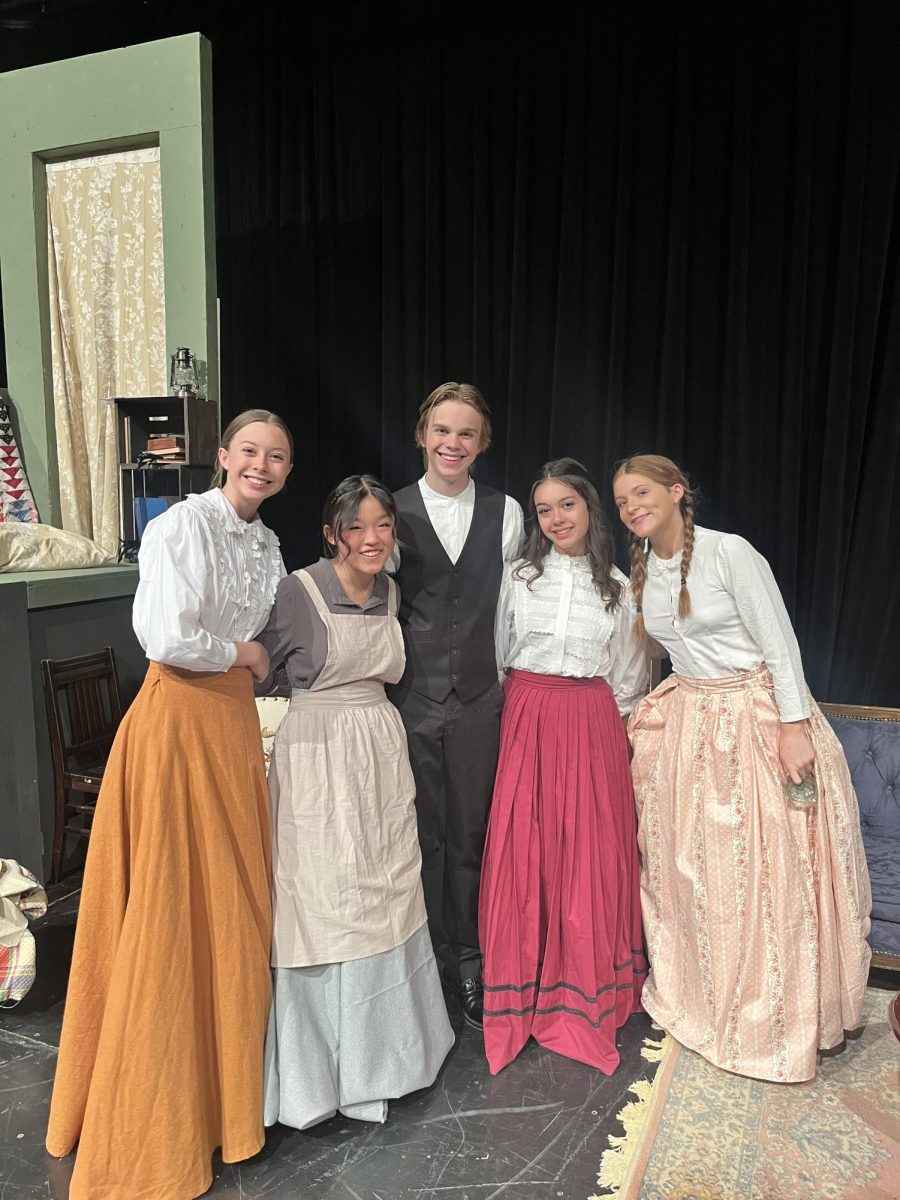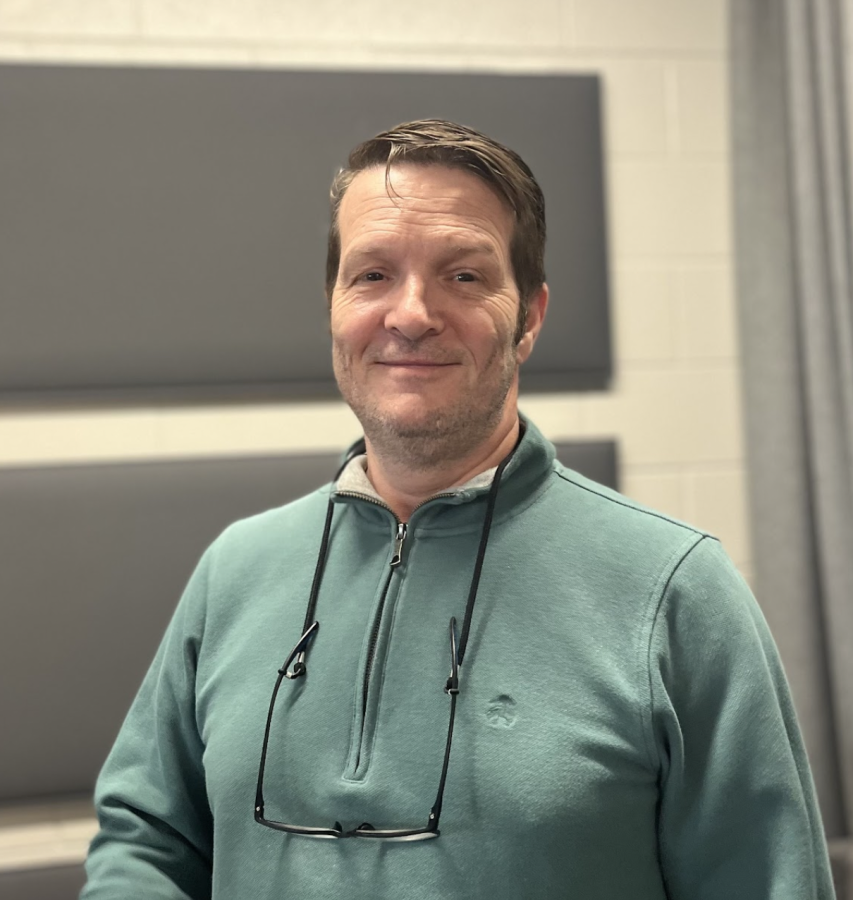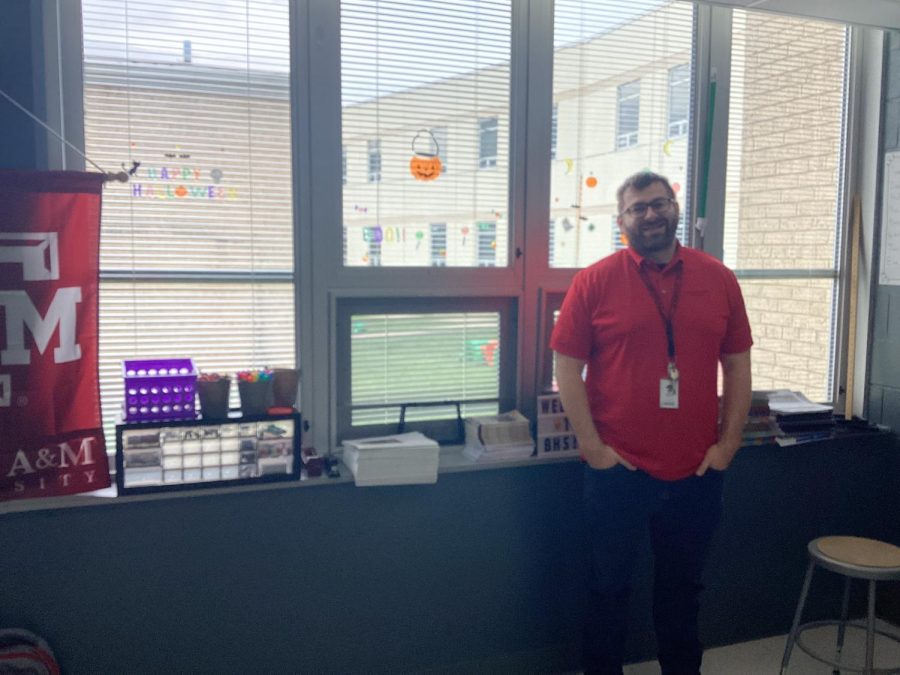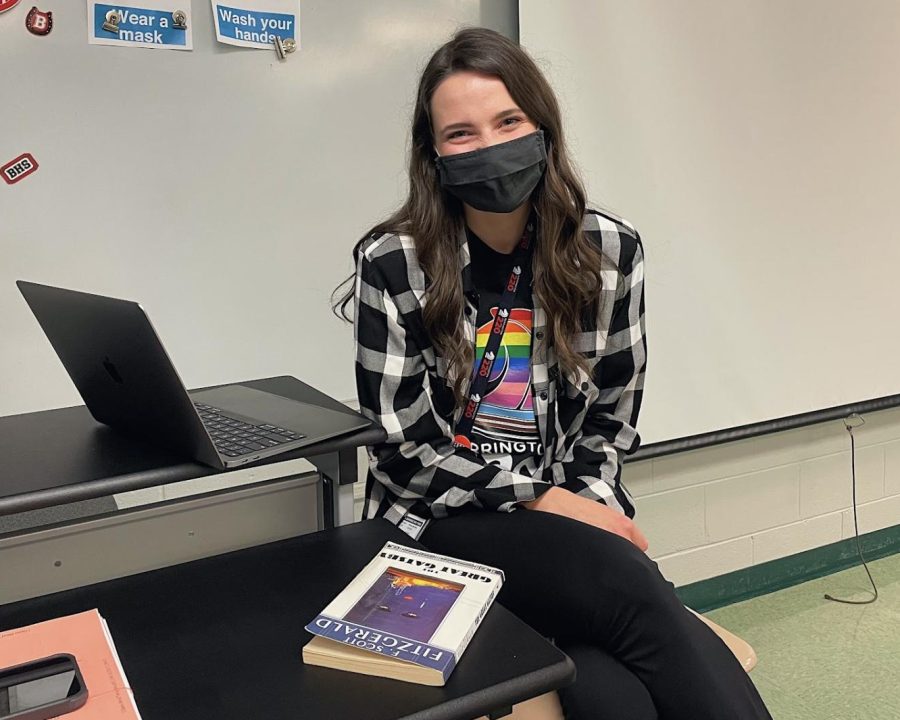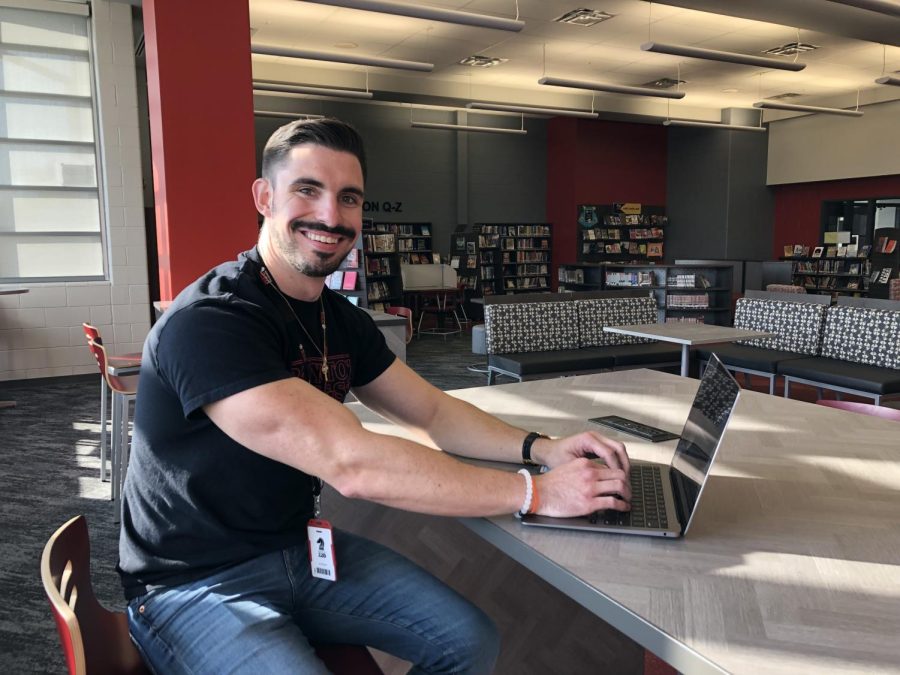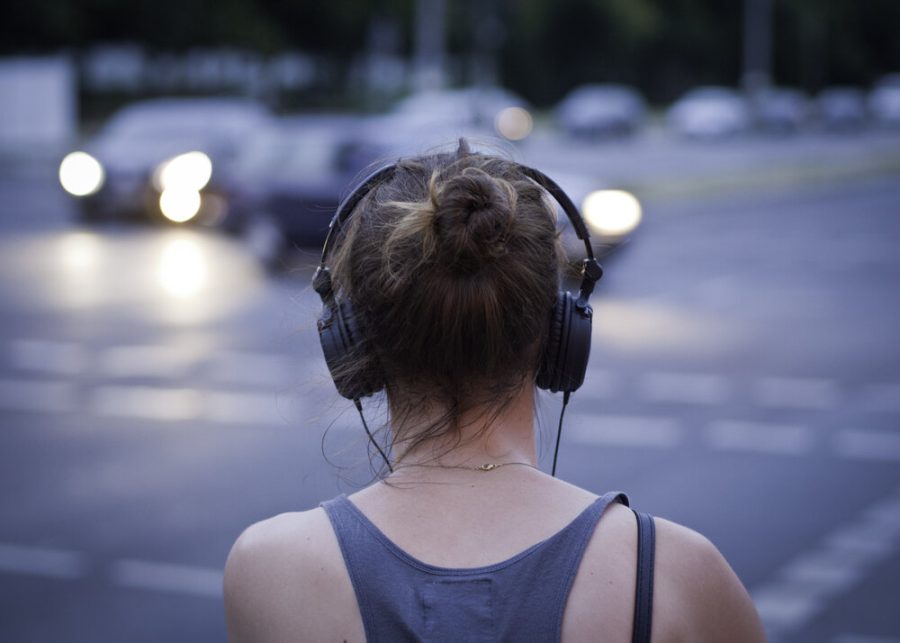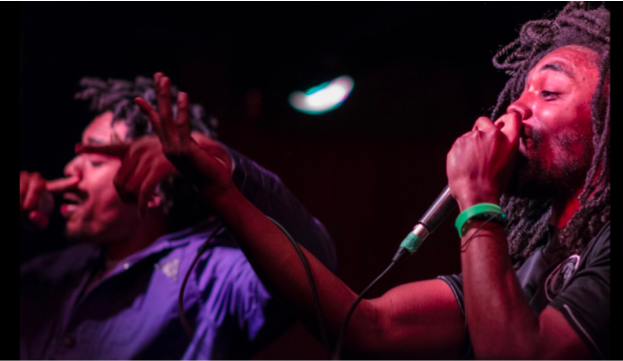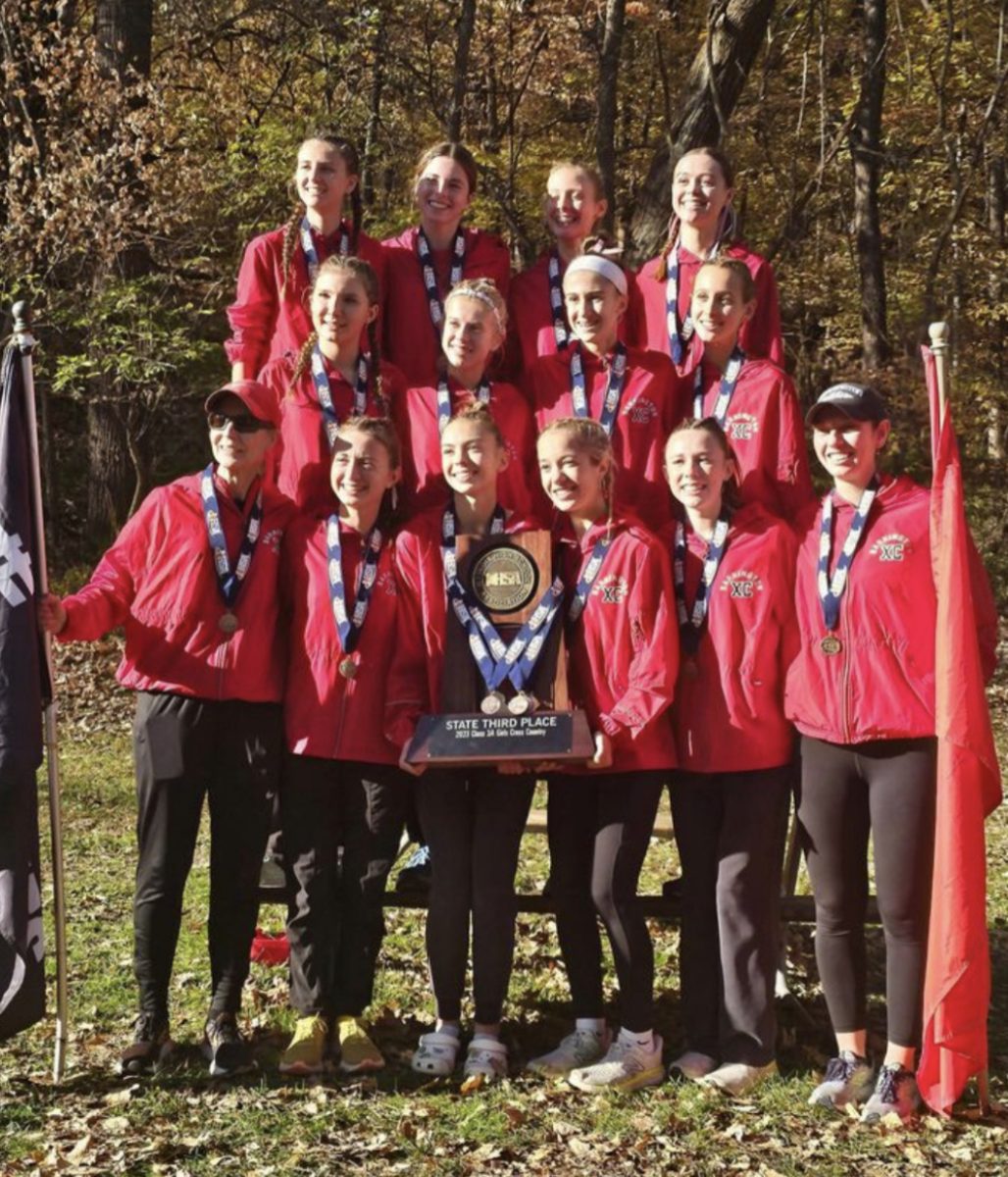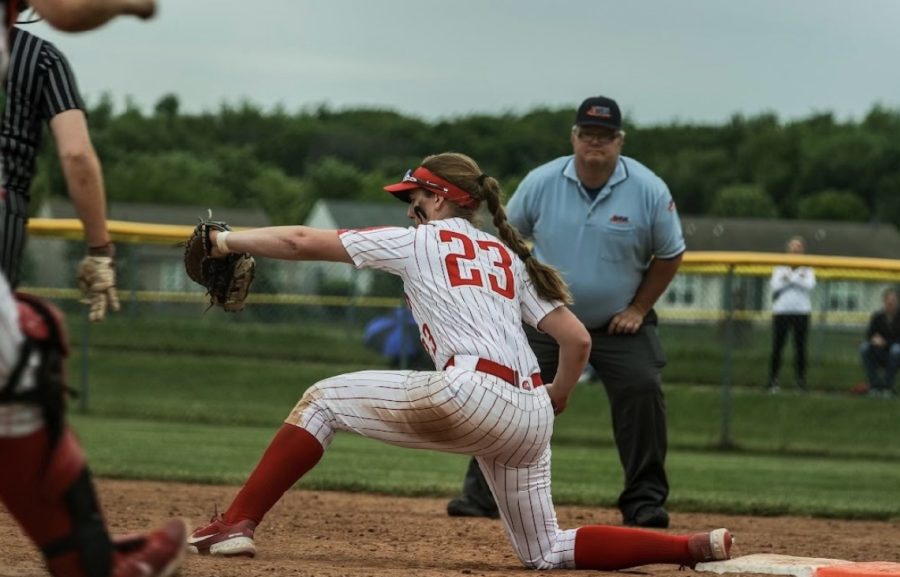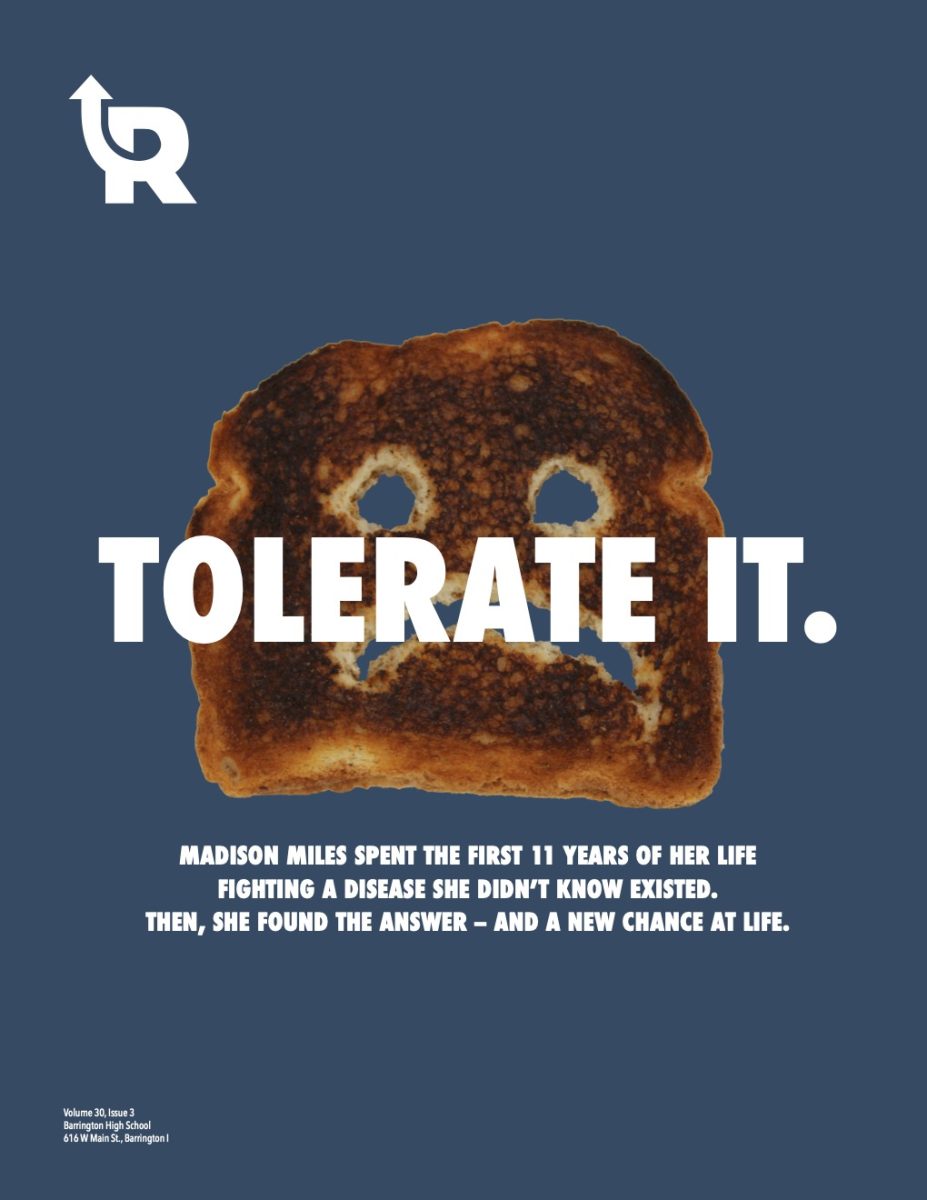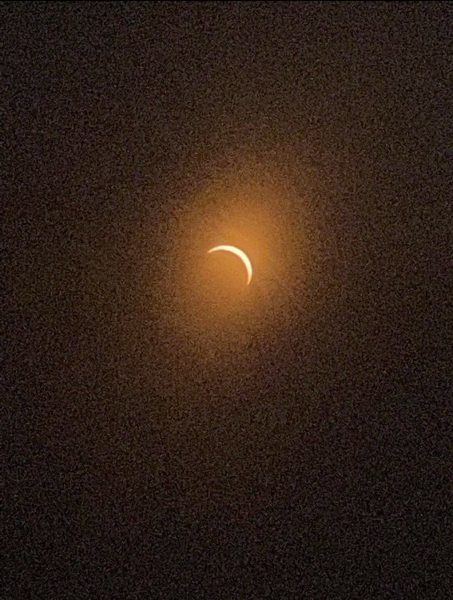Singing through a black screen
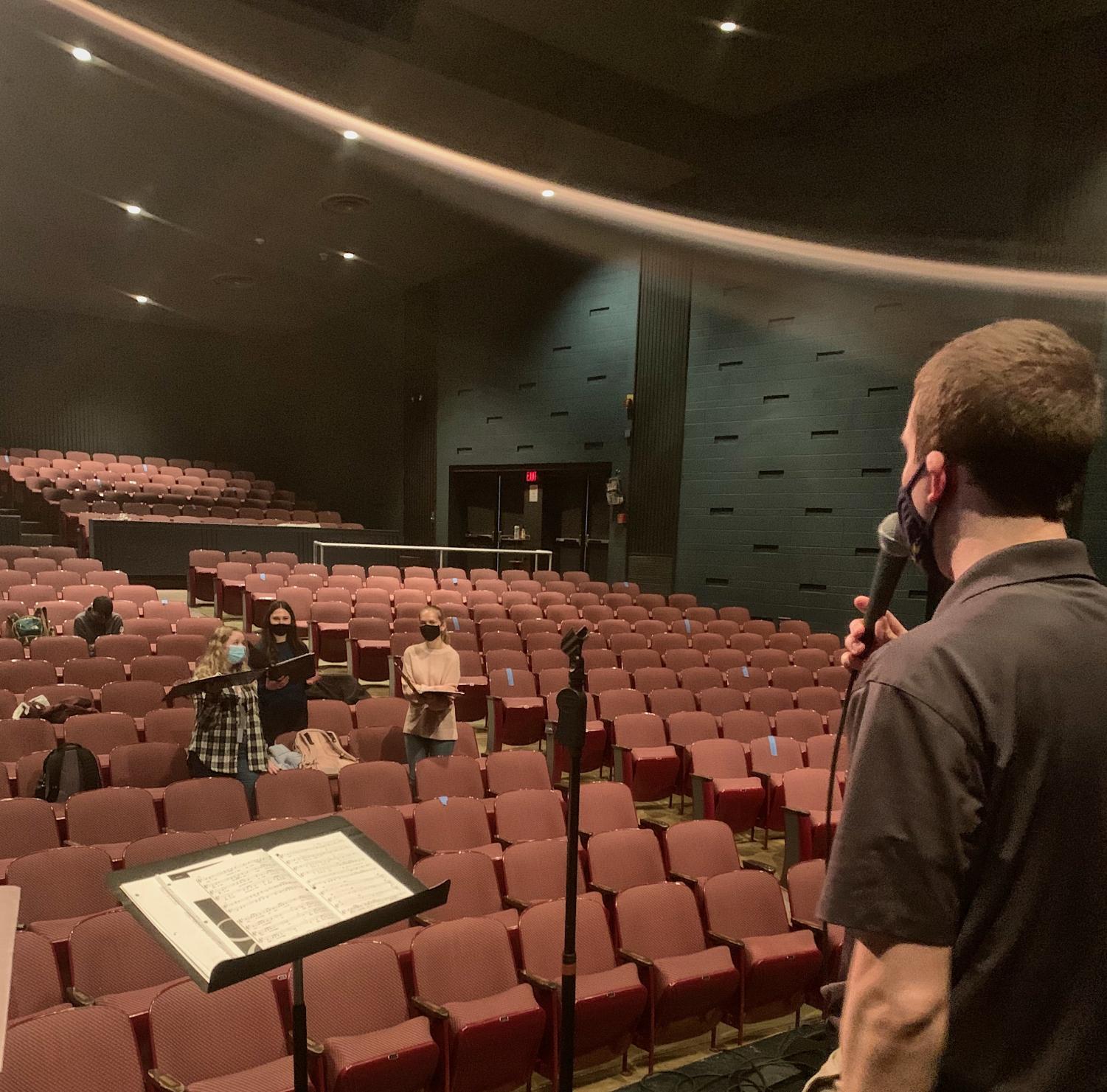
A day in the life of a teacher changed so rapidly in such a short period of time. Black screens are the new faces of students. Hallways are empty and quiet. In the fine arts hallway especially, laughter and singing was replaced with silence. Slowly, however, the music is coming back; sounding more hopeful than it ever has before.
The fine arts department has had to make substantial changes with the adjustment to virtual classes and events. A teacher who has felt this impact greatly is Brandon Pemberton, the choral director. With hybrid schedules constantly being adjusted, difficulties show their face for teachers, Pemberton included.
“Figuring out how to still have an ensemble experience for us in a choral setting was a challenge,” Pemberton said. “We’ve been waiting on the science and the policies to inform everything we do, so I think that’s the toughest part: the constant change.”
The hybrid plan is more set in stone currently, but the beginning was rocky when it came to the in-person student population. Staff was able to gradually bring back more students in all grade levels full time because of the low attendance of in-person students.
“Originally I was not that excited about the hybrid plan because it seemed our hybrid numbers were actually pretty low. I felt like that was even harder than having everyone remote,” Pemberton said. “But now where basically anybody that wants to come in has the opportunity to five days a week, our numbers are a little better which is allowing us to have a stronger ensemble.”
A sense of ensemble is important in choir according to Pemberton, so in-person rehearsals are common. But non-remote events mean masks are a necessity. A prevailing worry is that masks make singing incredibly difficult. Pemberton shares his thoughts on singing with masks.
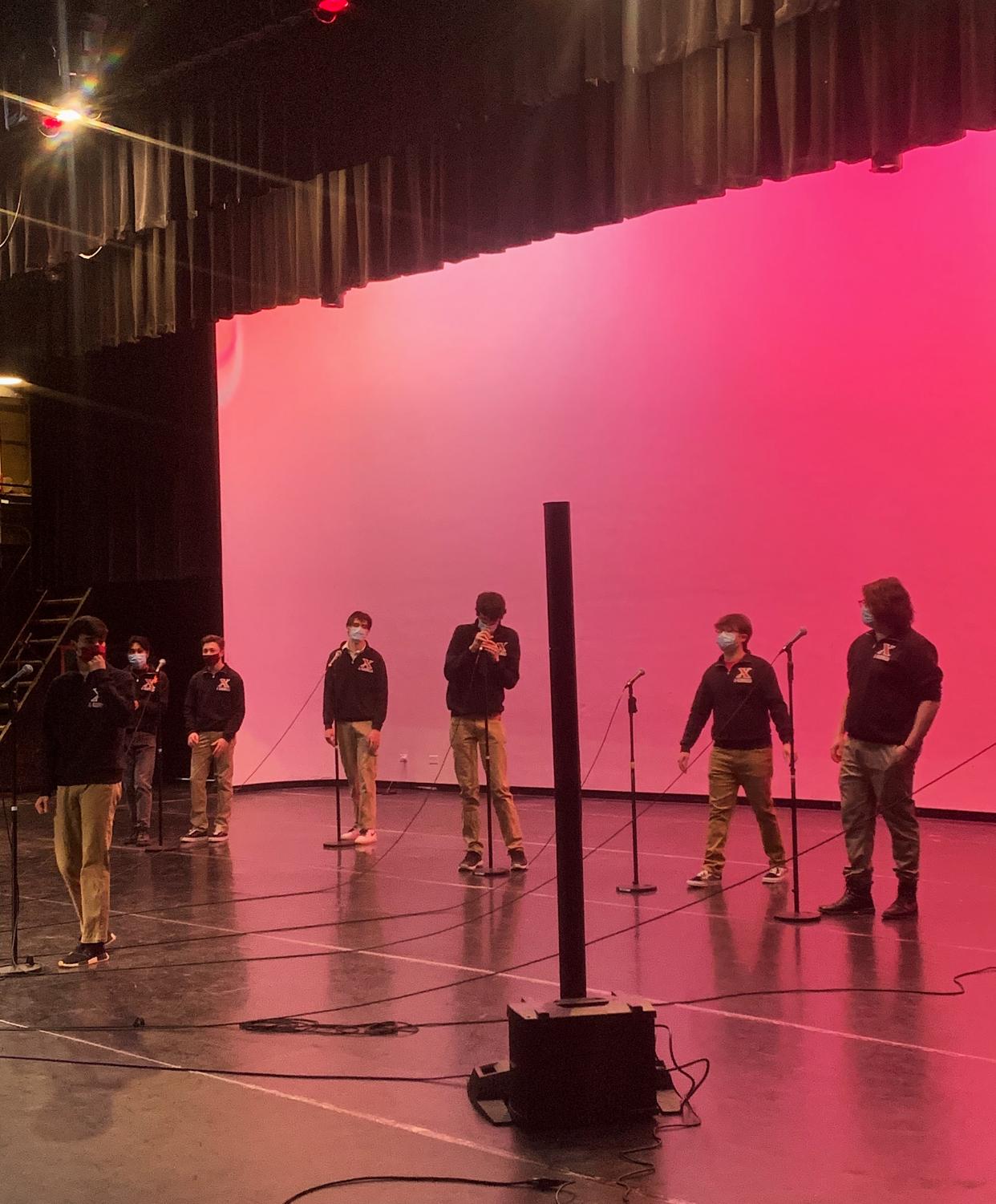
“I think [singing with masks] is a challenge, and it does affect things, but I am pretty used to it at this point- I sing all day long,” Pemberton said. “And our students have been particularly resilient.”
Pemberton does not only teach choir- he also oversees the four a cappella groups. The groups are student-led, so in the past Pemberton has had less involvement. But this year, because of the unique circumstances, he works closely with the a cappella leaders. Like most school activities, a cappella has had to make multiple adjustments in regards to meeting and performing.
“We started off the year really strong with auditions, building our groups and outdoor rehearsals, which was great,” Pemberton said. “But moving into the fall when there was the second wave of cases the weather was getting colder and people needed to be inside. We also started to have more exposure with people coming back to school.”
Some a cappella groups stopped rehearsing all together. Safety is the number one priority for everyone involved. However, as cases have decreased, a cappella groups have started meeting more frequently again.
“Now that we’re in second semester we’ve planned some more specific things for a cappella to do so there is a sense of purpose and active goals to work towards,” Pemberton said.
One goal was the Valentine singing grams Thursday, Feb. 11. That was the first performance of the second semester for a cappella groups.
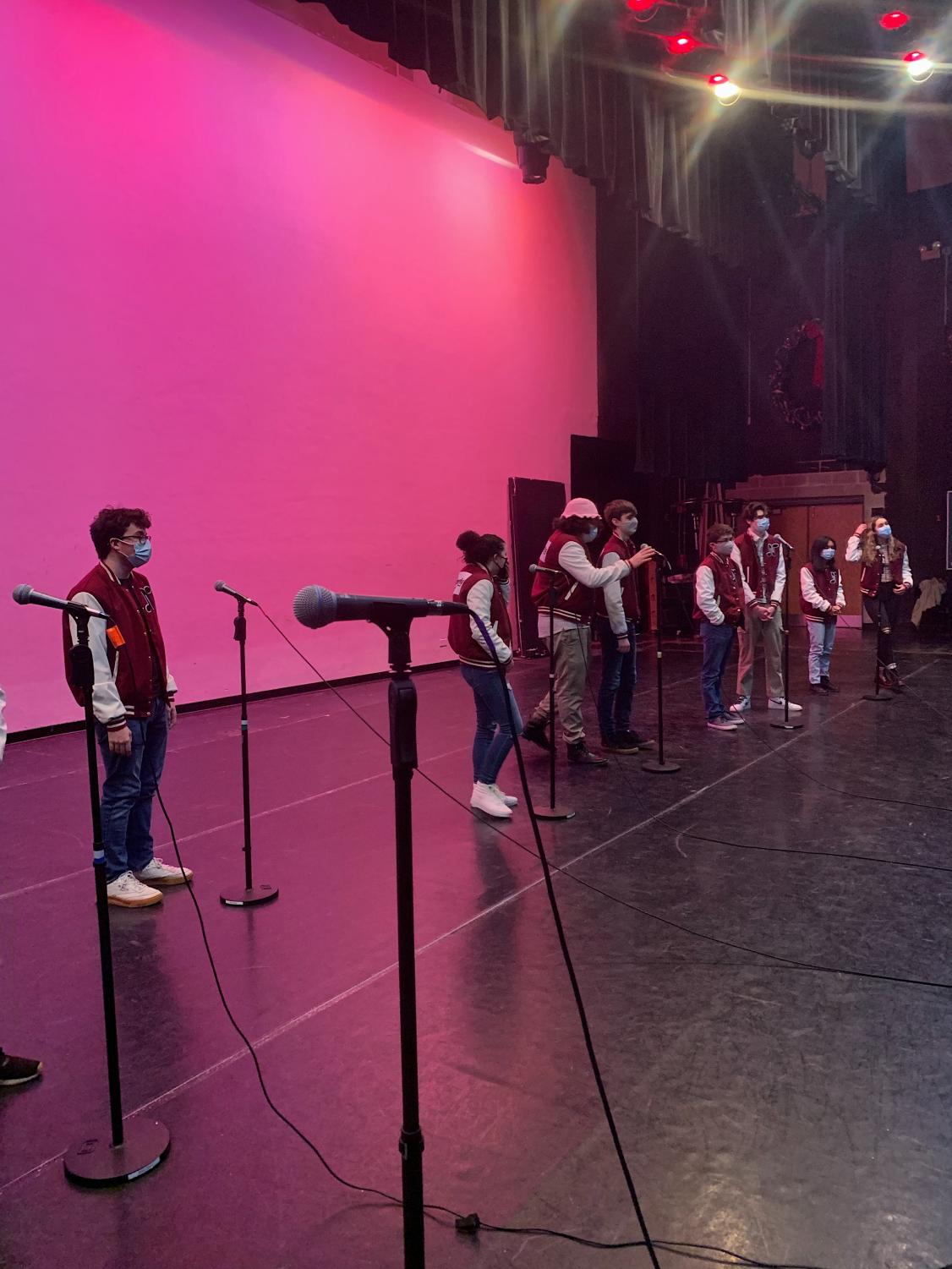 For the past three years, a cappella groups celebrated Valentine’s Day by serenading students during class with a song chosen by a friend. Each year, the event has expanded and gained more popularity. But this year it prevails under different circumstances. Since hybrid is in full force, students have a presence in school and online classroom environments. To give everyone an opportunity to receive a singing gram, the a cappella groups performed via Zoom or pre-recorded songs. 140 singing grams were sold this year, which is a number Pemberton and a cappella students are proud of.
For the past three years, a cappella groups celebrated Valentine’s Day by serenading students during class with a song chosen by a friend. Each year, the event has expanded and gained more popularity. But this year it prevails under different circumstances. Since hybrid is in full force, students have a presence in school and online classroom environments. To give everyone an opportunity to receive a singing gram, the a cappella groups performed via Zoom or pre-recorded songs. 140 singing grams were sold this year, which is a number Pemberton and a cappella students are proud of.
“It gives us a major performing opportunity publicly in the community, and is also a really positive thing to do as a group,” Pemberton said.
Events such as this also create opportunities for students from the money raised. In other words, the hard work does pay off. Pemberton explains where funds from gigs like the singing grams go to in the fine arts department.
“In our department we have three different activity accounts, and one of those is for the a cappella groups,” Pemberton said. “Any money that the a cappella groups bring into the school goes to that account- and we use that account for a cappella stuff such as attire.”
Overall, Pemberton has made everyday count for his choir classes and a cappella groups. With life always moving, students feel ever so grateful for his constant hard work, dedication and sense of stability he brings into the fine arts department. Because of Pemberton’s positivity, the music and laughter has returned in the hallways.
Your donation will support the student journalists at Barrington High School! Your contribution will allow us to produce our publication and cover our annual website hosting costs.






